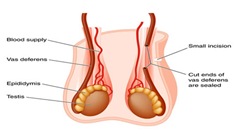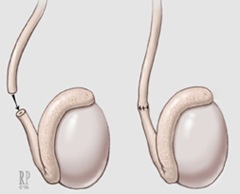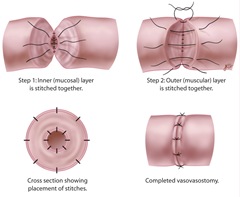Post-Vasectomy Pain Syndrome (PVPS) is a condition that affects some individuals following a vasectomy procedure. In this blog, we will explore the implications of PVPS, its potential impact on individuals considering vasectomy reversal, and how this procedure may provide relief from the associated symptoms. Dr. Yaniv Larish, a top urologist in New York City, offers expertise in vasectomy reversal and can provide comprehensive guidance for those affected by PVPS.

Understanding Post-Vasectomy Pain Syndrome (PVPS)
PVPS refers to chronic or persistent pain that occurs in the scrotum, testicles, or groin area following a vasectomy. While the exact cause of PVPS is not fully understood, it is believed to result from various factors, including nerve damage, inflammation, congestion, or the development of sperm granulomas. The severity and duration of pain can vary from person to person, significantly impacting their quality of life.
Implications for Individuals Considering Vasectomy Reversal
For individuals experiencing PVPS, vasectomy reversal may offer a potential solution to alleviate or reduce the associated pain. By reconnecting the vas deferens and restoring the natural flow of sperm, vasectomy reversal can potentially relieve congestion, reduce inflammation, and alleviate nerve irritation that may contribute to PVPS symptoms.
The Role of Vasectomy Reversal in Managing PVPS
Vasectomy reversal has been shown to provide symptom relief for many individuals suffering from PVPS. Studies have indicated that a significant number of patients experience a reduction in pain following the procedure. However, it is important to note that the degree of improvement can vary depending on individual factors, such as the underlying cause of PVPS and the duration and intensity of symptoms.
Consulting with a Specialized Urologist
If you are experiencing PVPS and considering vasectomy reversal as a potential solution, it is crucial to consult with a specialized urologist who has expertise in both vasectomy reversal and the management of PVPS. Dr. Yaniv Larish, with his extensive experience in male reproductive health, can provide a comprehensive evaluation of your condition and offer personalized guidance on the potential benefits of vasectomy reversal for PVPS symptom relief.

Post-Vasectomy Pain Syndrome (PVPS): Conclusion
Post-Vasectomy Pain Syndrome (PVPS) can significantly impact the quality of life for individuals who have undergone a vasectomy. Vasectomy reversal offers a potential solution for those seeking relief from PVPS symptoms. Consulting with a specialized urologist like Dr. Yaniv Larish is crucial to assess your specific condition and determine if vasectomy reversal is an appropriate option to alleviate PVPS symptoms.
To learn more about vasectomy reversal and its implications for managing PVPS, schedule a consultation with Dr. Larish at his practice:
Yaniv Larish, MD
4 East 76th Street
New York, NY 10021
Phone: (646) 862-5500
Dr. Larish’s expertise in vasectomy reversal and compassionate approach to patient care ensure that you receive the guidance and support needed to make an informed decision about managing PVPS through vasectomy reversal.







